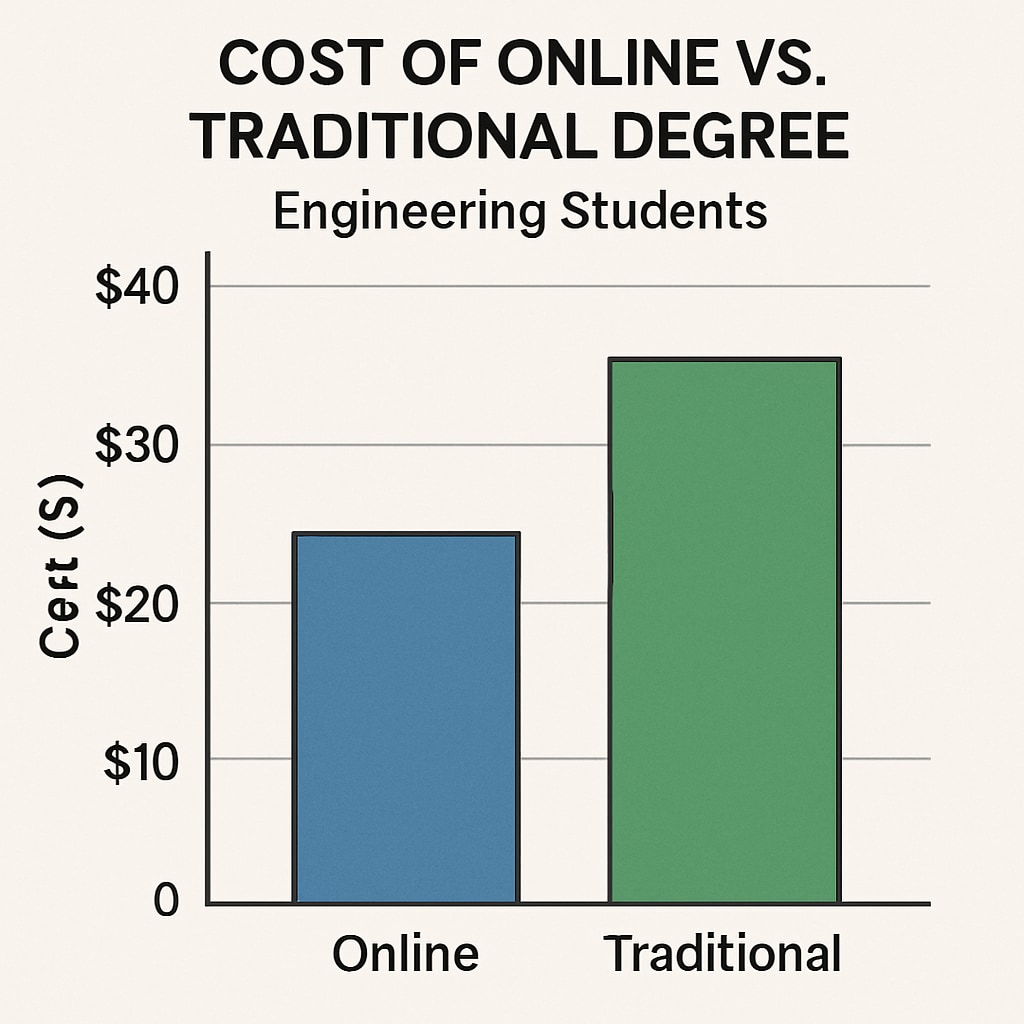The increasing availability of online degrees has opened up new opportunities for students in technical fields, including those currently pursuing a degree in mechanical engineering. However, the decision to simultaneously earn a second degree demands careful evaluation. Factors such as cost, time management, and the potential impact on career development must be considered. This article dives into the pros and cons of this educational path and provides practical advice for future engineers contemplating this dual-degree journey.
Is Pursuing an Online Second Degree Worth the Cost?
One of the first considerations is the financial investment. The cost of an online degree can vary widely, from a few thousand dollars to tens of thousands, depending on the institution and program. For a mechanical engineering student, adding a second degree in areas such as computer science, business administration, or data science could enhance their career prospects, but is the cost justified?
Advantages of this investment include:
- Increased earning potential in interdisciplinary fields.
- Expanded career opportunities, especially in emerging industries like automation and AI.
- Access to alumni networks and resources from multiple institutions.
However, students should also weigh the risks. For example, if the second degree overlaps too much with their current studies, the return on investment may be minimal. Researching scholarship options or employer tuition assistance programs can help mitigate these costs. According to Britannica’s education insights, online programs are increasingly offering financial aid tailored to working professionals and students.

Balancing Time Management with Dual Degrees
Time management is a critical challenge when pursuing two degrees simultaneously. Mechanical engineering programs are already rigorous, requiring significant time for coursework, lab activities, and internships. Adding an online second degree demands exceptional organizational skills.
To succeed, students should:
- Create a detailed weekly schedule, allocating time for both degrees and personal well-being.
- Utilize productivity tools such as Trello or Notion to track deadlines and milestones.
- Take advantage of the flexibility of online learning, studying at their own pace when possible.
For example, online programs often offer asynchronous classes, allowing students to watch lectures and complete assignments at times that fit their schedules. This flexibility is invaluable but requires self-discipline. A lack of proper time management can lead to burnout and affect the quality of learning in both programs.

Assessing Career Development Benefits
The ultimate goal of a dual-degree path is to enhance career opportunities. For mechanical engineering students, adding a degree in a complementary field can open doors to specialized roles. For instance, combining mechanical engineering with data science equips students for roles in predictive maintenance or smart manufacturing.
However, students should consider alternative ways to achieve similar goals:
- Short-term certifications in high-demand skills such as Python programming or project management.
- Internships or co-op programs that provide hands-on experience in interdisciplinary roles.
- Networking through professional organizations like ASME (American Society of Mechanical Engineers).
In some cases, these alternatives may offer a quicker and more cost-effective route to career advancement than pursuing a full second degree. According to Wikipedia’s overview of education, lifelong learning strategies, such as professional development courses, are becoming increasingly popular among engineers.
Making the Final Decision
Deciding whether to pursue an online second degree while studying mechanical engineering is a deeply personal choice. It depends on individual career goals, financial capacity, and time availability. Students should conduct thorough research, consult academic advisors, and weigh their options carefully.
Ultimately, this path can be highly rewarding if approached with careful planning and realistic expectations. For those who manage their time effectively and align their studies with long-term career objectives, the dual-degree journey can be a transformative experience.
Readability guidance: Throughout the article, effort has been made to use short paragraphs, clear lists, and accessible language. Overuse of passive voice has been avoided to ensure the content remains engaging and actionable.


